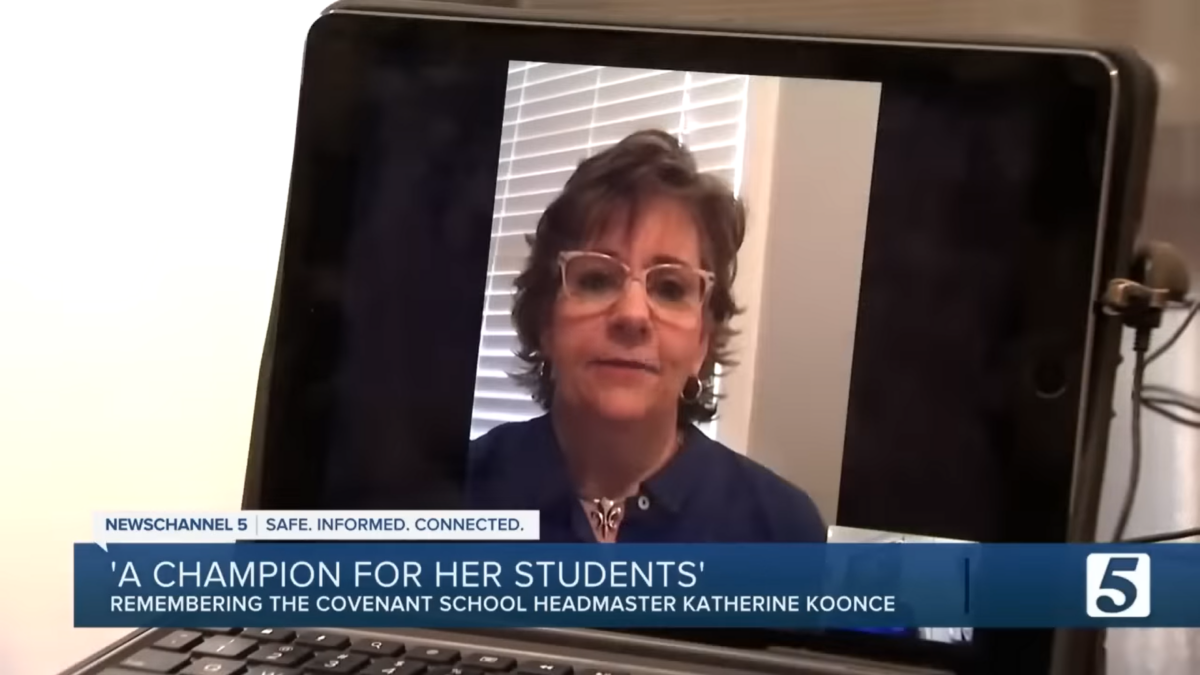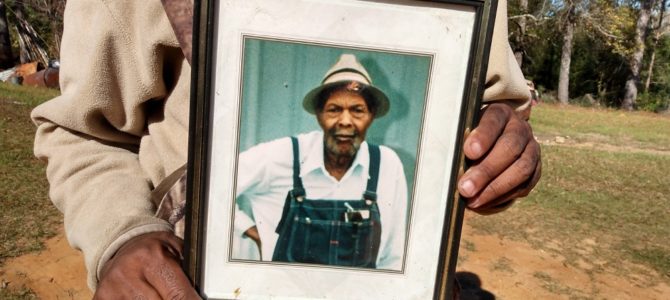
Shirley Parker Wyatt was working at a dollar store, where she was assistant manager, on Thanksgiving Day 2001 when she got an emergency phone call.
“Your parents’ house in on fire, and they are both in it,” the trembling voice said.
Shirley raced home and saw her parents’ home engulfed in flames. The volunteer fire department had not yet arrived. Her sister had been able to get her mother out of the house. But her father, Mitchell, who was in a wheelchair following a stroke, was still inside. No one could get him out. He was 84.
Thanksgiving has not been the same since. Even today, talking about that Thanksgiving tragedy 19 years ago, her son Chris Wyatt, 45, who was devoted to his grandfather, weeps openly.
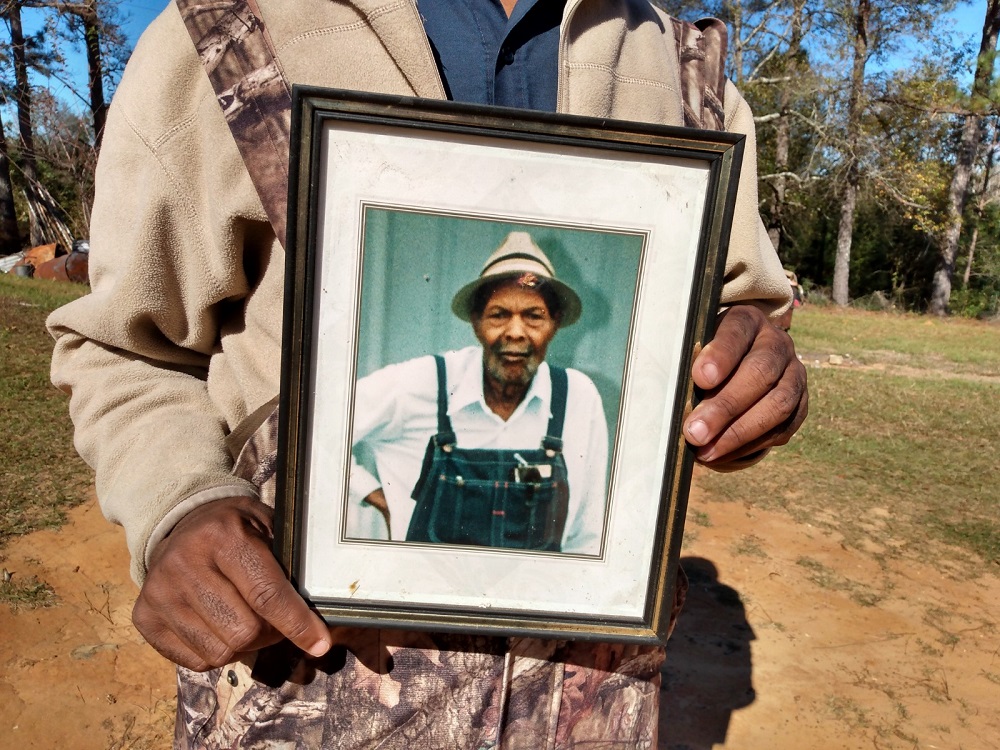
Tragedy is not new to the family. In 1975, Shirley’s husband, Calvin Wyatt, died at the age of 23 from a heart attack while cutting wood. Shirley still keeps the discolored 45-year-old bulletin from his funeral in the family Bible. When Calvin died, their son Chris was just three months old.
“I had a lot of anger at God about that,” Shirley said. “Why would you take such a good man and leave me to raise this child without a father?”
But her father, Mitchell Parker, stepped up and became like a father to her young son.
When Shirley would come home from the dollar store, where she went to work a few years after her husband died, she would ask where her son was. “Out on the tractor with your dad,” her mother would say. Or she’d say he was pulling peanuts, loading watermelons for the pastor, feeding pigs, planting greens, grinding corn, or cooking syrup “with your dad.”
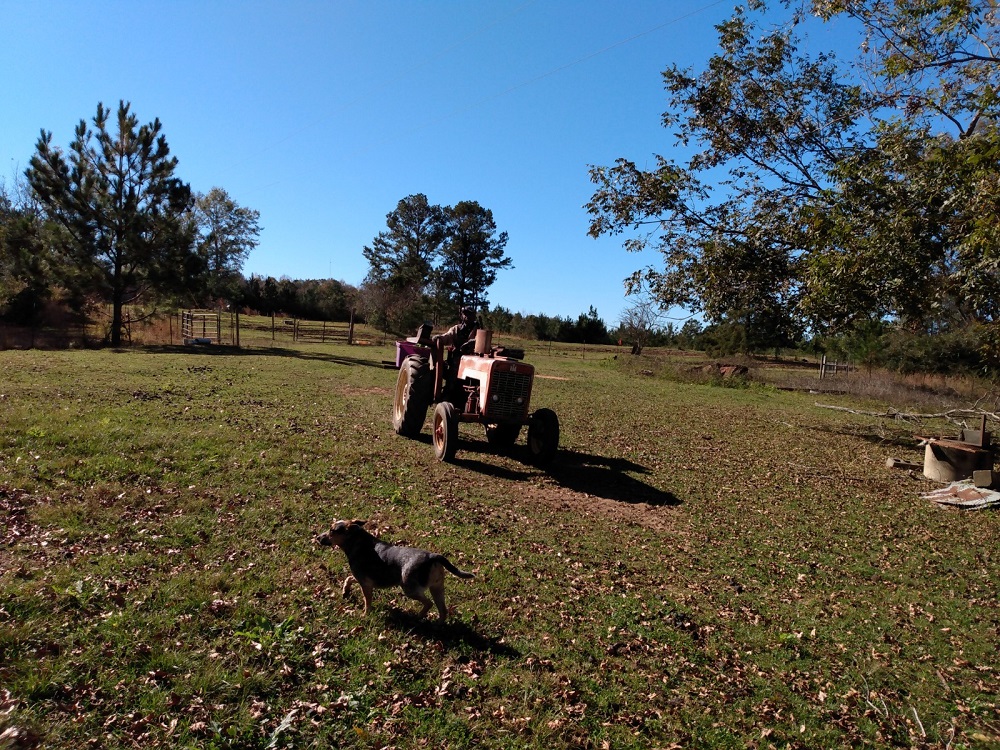
Chris was his grandfather’s shadow, following him everywhere, wanting to do whatever he did. Often he didn’t want to go home. He even became a church deacon at the tender age of 20 because his granddad was a deacon at New Salem Baptist Church, Shirley says, a church from the late 1800s where they are still members.
So it was no surprise that Chris would return to farming this year, the fourth generation to farm land in rural Autauga County, Alabama, that has been in the family for over 110 years.
The 1910 census shows Chris’s great-grandfather, Martin Parker, owning his land. Born in 1873, Martin couldn’t read or write, but he was part of a small percentage of black farmers in the Deep South who owned his land. In 1910 in the South, 75 percent of blacks rented while only 25 percent owned their farms, according to the U.S. Census Bureau.
Martin’s son Mitchell, the second-youngest of seven children, inherited 10 acres, and bought 100 more. Later his daughter Shirley bought another 26 acres. The family held onto their beloved land, despite millions of acres of black-owned land lost from 1900-2000. Some went to mostly white landowners due to the Great Migration, but much of it was lost to legal issues and discrimination.
The Parker-Wyatt family farm sits about two miles down a gravel road off the winding and hilly two-lane County Road 1. It’s called Mitchell Road after his grandfather, who developed the area. No one knows why, but the water board failed to put water lines along the road, which explains why the volunteer firefighters didn’t get to his house on that Thanksgiving Day in time to put out the flames— they had to fill the water tank before they came.
Chris’s grandfather Mitchell was a self-sufficient farmer living far from any town (Jones, pop. 750 is the nearest Post Office) growing, grinding and caring for everything a family of 13 needed. His 11 children did chores and he planted everything from corn and peanuts to greens and fruit trees, from cotton to watermelons and hay. He kept beef cattle, milk cows, hogs, and chickens. “He even ground his own [corn] meal and grits and made cane syrup,” Shirley said.
Back in those days, African-American farmers in rural Alabama weren’t allowed to sell to stores, Shirley said, so he sold to people who knew him, and knew his product was quality. Shirley inherited a love for the land, growing large vegetable gardens most of her life, and selling them at farmer’s markets or giving them away to those in need.
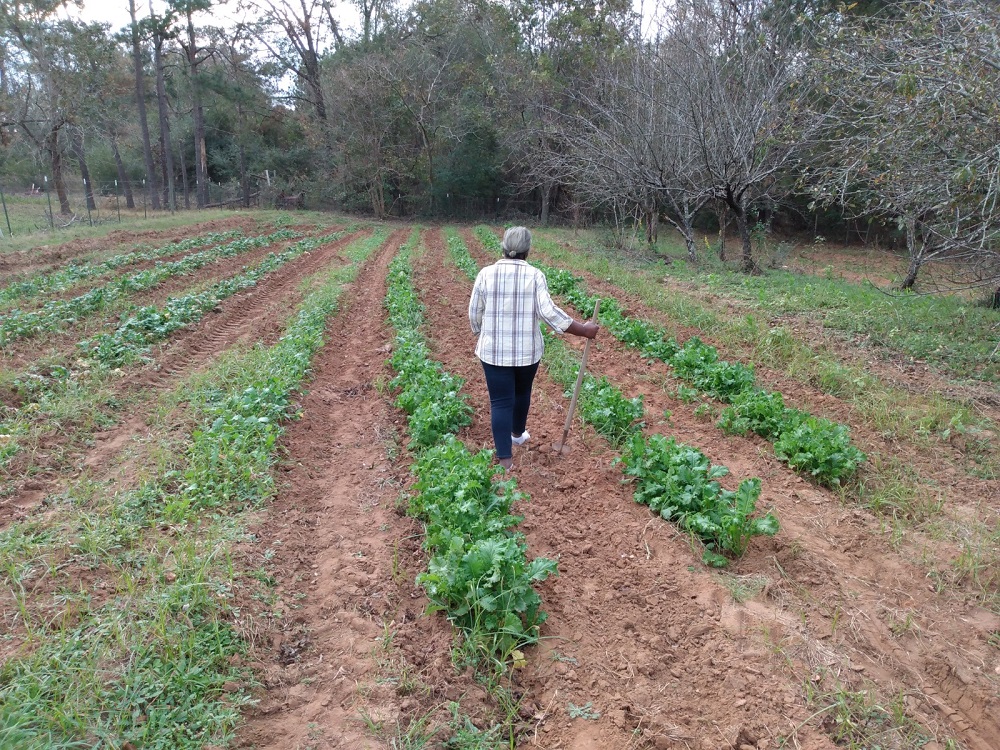
After an emergency surgery last December, Chris knew he didn’t want to go back to selling cars, working in manufacturing, or any of his other jobs. While he had always helped his grandfather on the farm while working other jobs, Chris decided to join a select group of 11,724, the number of African American farmers, about 1.7 percent of farmers nationally, with the average size of farm of 179 acres or fewer.
They didn’t have many financial resources for B&W Farms, but they had an old red tractor, 136 acres of land, some goats, and farming know-how. In January 2020, he drove his 44-year-old tractor—one year younger than he is—out to the fields to plow. He’s been at it ever since. “I always had a dream to do this,” Chris said. With his daughters grown, he said he can now afford to live lean and work long.
This summer, they planted 10 acres in peas, sweet corn, cucumber, squash, tomatoes, green beans, cantaloupe, peppers, sweet potatoes, and Charleston Gray, Jubilee, Crimson Sweet, and yellow watermelon. Chris worked with a local grocer to sell his watermelons and plans to increase sales with him and in other markets, always being sure to keep some food for people in the community.
“It’s the way I was raised,” Chris said. “A good name is hard to come by.”
It hasn’t been easy. Coyotes killed all but one goat and deer eat his crops. A donkey keeps the last goat safe until they get more. Fencing the fields would help with the deer, but they can’t afford it until they grow more crops. And they can’t do that very well with an old International Harvester tractor that’s no longer manufactured, so parts are hard to come by. It’s already leaking oil.
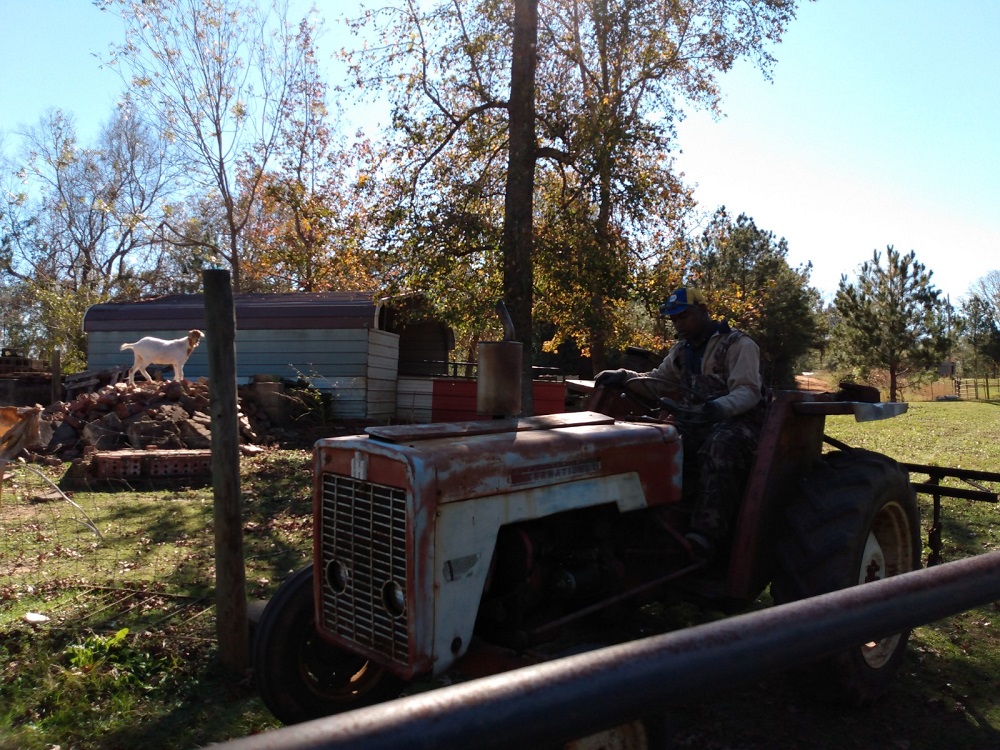
“What we really need is a working tractor,” Chris said. “We tried to finance one, but it would cost us more than we could afford.”
To keep supporting his family, in between farm chores he mows yards, power-washes buildings and sidewalks, and referees high school and college basketball games (for COVID protocols, everyone wears masks and seating is limited). His mom, who retired from the dollar store in 2004, cleans houses and sells yard sale finds at the local flea market.
Standing in the field, Chris clearly carries on his grandfather’s legacy, a deep connection to the land with the shadows of the past clearly visible.
“You know it was just this time of day this time of year when granddad and I were in a shed over there pulling peanuts,” he said, pointing into the shadows beyond the pine trees. “In that field over there we grew watermelons,” he says, pointing to another field just out of sight. “I would load them up in a wheelbarrow to carry some to the preacher.”
“Over there,” he says pointing to where winter greens are thriving, “granddaddy was working the sweet potato patch and a great big rattler came out. My uncle got it just in time.”
As he looks out on his land, you know he is remembering everything his granddaddy taught him. He carries his picture in his truck. Ask him what tractor they used: “a 135 Massey Ferguson,” he responds without hesitation.
“I like being out here. It’s home. And I think about granddaddy all the time.”
Help buy Chris a tractor for his farm by donating here. Those who want to give to the Tractor Fund for Chris Wyatt outside GoFundMe can contribute to his church, New Salem Baptist, at P.O. Box 14, Jones, AL 36749. They will tithe on the amount given through the church.





